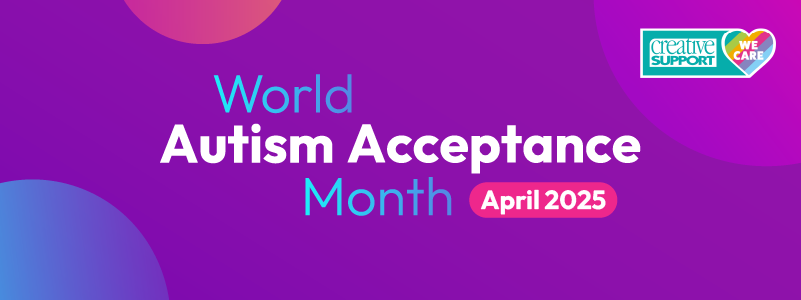Autism Acceptance Month | Autistic Burnout

More Than Tired:
Autistic Burnout and the Need for Acceptance
Written by Joshi from the Learning and Development Team
Most people will experience some degree of stress and exhaustion from time to time, varying from physical, mental and emotional. What is not often talked about is autistic burnout, and how it manifests in different complex and enduring ways.
For an individual on the spectrum, burnout may appear similarly to the neurotypical experience, but comes alongside other challenges often triggered by changes in routine.
Burnout is characterised by:
- A loss of ability or difficulty in carrying out everyday tasks
- A heightened level of sensitivity to external stimuli (e.g. noise)
- Persistent, long-term exhaustion that builds up over time
- A great need for time to rest between competing tasks and demands
Burnout can be triggered by:
- Changes in living or work environments, such as a new job or promotion
- Moving home, and adapting to new routines, spaces, people and travel
- An increase in social demands where ‘masking’ is more prevalent in order to navigate (learn more about masking by checking out the link at the bottom of the page)
Speaking from my own experience, I have a modest social battery – it can, however, sometimes drain quickly when I’m faced with competing levels of demands. These situations may often require more mental preparation and paying attention to my sensory limitations. For example, in a loud and busy environment, such as a pub or restaurant, I may find it difficult to spend time there if I am overwhelmed by sensory stimuli. However in some cases, if I am in an environment that aligns with my interests or hobbies, I feel able to better cope with the sensory input.
The overstimulation of an autistic brain can be described as having a sponge that is constantly absorbing the various levels of sensory input. Eventually, the sponge becomes saturated – too full to absorb anything more. At that point, it starts to become increasingly difficult to process or prioritise information. Sometimes, the only remedy is stepping away from the situation or space, allowing time to rest and let the sponge dry out to create space. In future, as a result, this space, environment or situation may be avoided altogether.
Burnout is not simply about being tired – for autistic individuals, this can be a profound and often invisible struggle that has a heavy drain on a person’s physical and emotional energy levels. Greater acceptance means acknowledging that the world isn’t always designed with neurodivergent people in mind. We need to recognise the importance of rest, routine and sensory balance. By listening, adjusting environments and embracing differences, we can take meaningful steps towards better inclusion.
Acceptance isn’t just about awareness – it’s about action.
As colleagues, we all have a vital role to play in supporting one another. During Autism Acceptance Month and beyond, we should strive to continue to build a culture of empathy, flexibility and understanding – where everyone can contribute and thrive.
